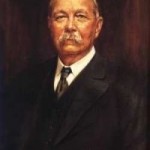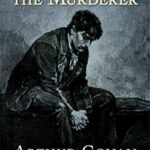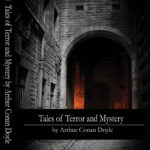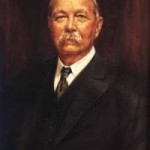There are many who will still bear in mind the singular circumstances which, under the heading of the Rugby Mystery, filled many columns of the daily Press in the spring of the year 1892. Coming as it did at a period of exceptional dullness, it attracted perhaps rather more attention than it deserved, but it offered to the public that mixture of the whimsical and the tragic which is most stimulating to the popular imagination. Interest drooped, however, when, after weeks of fruitless investigation, it was found that no final explanation of the facts was forthcoming, and the tragedy seemed from that time to the present to have finally taken its place in the dark catalogue of inexplicable and unexpiated crimes. A recent communication (the authenticity of which appears to be above question) has, however, thrown some new and clear light upon the matter. Before laying it before the public it would be as well, perhaps, that I should refresh their memories as to the singular facts upon which this commentary is founded. These facts were briefly as follows:
At five o’clock on the evening of the 18th of March in the year already mentioned a train left Euston Station for Manchester. It was a rainy, squally day, which grew wilder as it progressed, so it was by no means the weather in which anyone would travel who was not driven to do so by necessity. The train, however, is a favourite one among Manchester business men who are returning from town, for it does the journey in four hours and twenty minutes, with only three stoppages upon the way. In spite of the inclement evening it was, therefore, fairly well filled upon the occasion of which I speak. The guard of the train was a tried servant of the company—a man who had worked for twenty-two years without a blemish or complaint. His name was John Palmer.
The station clock was upon the stroke of five, and the guard was about to give the customary signal to the engine-driver when he observed two belated passengers hurrying down the platform. The one was an exceptionally tall man, dressed in a long black overcoat with astrakhan collar and cuffs. I have already said that the evening was an inclement one, and the tall traveller had the high, warm collar turned up to protect his throat against the bitter March wind. He appeared, as far as the guard could judge by so hurried an inspection, to be a man between fifty and sixty years of age, who had retained a good deal of the vigour and activity of his youth. In one hand he carried a brown leather Gladstone bag. His companion was a lady, tall and erect, walking with a vigorous step which outpaced the gentleman beside her. She wore a long, fawn-coloured dust-cloak, a black, close-fitting toque, and a dark veil which concealed the greater part of her face. The two might very well have passed as father and daughter. They walked swiftly down the line of carriages, glancing in at the windows, until the guard, John Palmer, overtook them.
“Now then, sir, look sharp, the train is going,” said he.
“First-class,” the man answered.
The guard turned the handle of the nearest door. In the carriage which he had opened, there sat a small man with a cigar in his mouth. His appearance seems to have impressed itself upon the guard’s memory, for he was prepared, afterwards, to describe or to identify him. He was a man of thirty-four or thirty-five years of age, dressed in some grey material, sharp-nosed, alert, with a ruddy, weather-beaten face, and a small, closely cropped, black beard. He glanced up as the door was opened. The tall man paused with his foot upon the step.
“This is a smoking compartment. The lady dislikes smoke,” said he, looking round at the guard.
“All right! Here you are, sir!” said John Palmer. He slammed the door of the smoking carriage, opened that of the next one, which was empty, and thrust the two travellers in. At the same moment he sounded his whistle and the wheels of the train began to move. The man with the cigar was at the window of his carriage, and said something to the guard as he rolled past him, but the words were lost in the bustle of the departure. Palmer stepped into the guard’s van, as it came up to him, and thought no more of the incident.
Twelve minutes after its departure the train reached Willesden Junction, where it stopped for a very short interval. An examination of the tickets has made it certain that no one either joined or left it at this time, and no passenger was seen to alight upon the platform. At 5:14 the journey to Manchester was resumed, and Rugby was reached at 6:50, the express being five minutes late.
At Rugby the attention of the station officials was drawn to the fact that the door of one of the first-class carriages was open. An examination of that compartment, and of its neighbour, disclosed a remarkable state of affairs.
The smoking carriage in which the short, red-faced man with the black beard had been seen was now empty. Save for a half-smoked cigar, there was no trace whatever of its recent occupant. The door of this carriage was fastened. In the next compartment, to which attention had been originally drawn, there was no sign either of the gentleman with the astrakhan collar or of the young lady who accompanied him. All three passengers had disappeared. On the other hand, there was found upon the floor of this carriage—the one in which the tall traveller and the lady had been—a young man fashionably dressed and of elegant appearance. He lay with his knees drawn up, and his head resting against the farther door, an elbow upon either seat. A bullet had penetrated his heart and his death must have been instantaneous. No one had seen such a man enter the train, and no railway ticket was found in his pocket, neither were there any markings upon his linen, nor papers nor personal property which might help to identify him. Who he was, whence he had come, and how he had met his end were each as great a mystery as what had occurred to the three people who had started an hour and a half before from Willesden in those two compartments.





